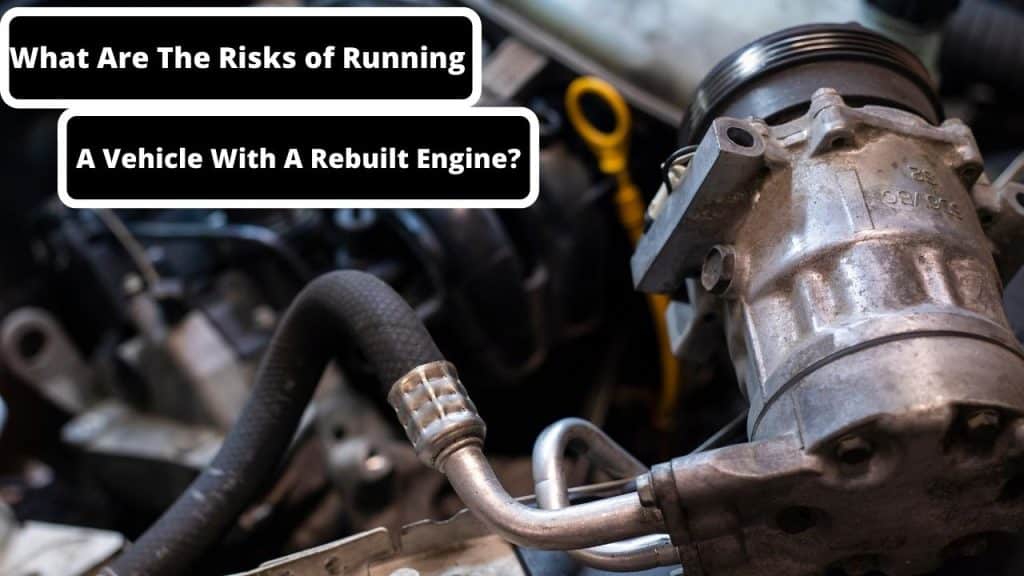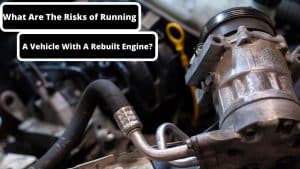Risks of running a vehicle with a rebuilt engine
There are risks associated with running a vehicle with a rebuilt engine. The main risk is that the engine may not be up to par, and this could lead to problems down the road. Another risk is that illegal reconditioning may have worked on the engine, which could lead to further problems.
Reconditioned engines are typically reused in other vehicles with the environmental benefits of recycling and reuse. Parts that should be replaced include cylinder heads, camshafts and crankshafts. All belts, chains and seals should be new.
The process of engine reconditioning is fascinating. Chemical cleaning ensures that the parts are free of debris, with no chance of damage. The short turnaround time will reduce downtime
Most common problems with rebuilt engines
One of the most common problems with rebuilt or Re-Conditioned Engines is worn and tear from high mileage or difficult use. This is often due to a lack of proper maintenance after the rebuild. In order to avoid this, it’s important that you keep up with all the recommended servicing and repairs.
Another issue that can arise is mismatching parts during the rebuild process. If different parts are not compatible, it can lead to engine failure. To ensure that this doesn’t happen, be sure to use only quality replacement parts from a reputable source.
Finally, poor installation can also cause problems with a rebuilt engine. If the engine isn’t installed correctly, it may not run properly or could even fail completely. Make sure you trust your mechanic and follow their instructions carefully to avoid any issues.
Benefits of rebuilding an engine
When purchasing Re-Conditioned Engines, always check the proof of quality.
Rebuilding an engine is cheaper than buying a new one, but it requires more labour to put it back together.
The cast-iron block should have been meticulously cleaned and honed for the new piston and rings.
The process of engine reconditioning is fascinating.
Parts that should have been replaced include new main bearings, camshafts, valves, water pump, etc.
The engine rebuild or reconditioning process ensures that all the parts are free of oil and residue.
The machine is stripped down to bits before it undergoes a chemical cleaning process.
After the engine rebuild, it undergoes a thorough checkup procedure by using an external device to detect any issues with the performance
Cost to rebuild an engine
Rebuilding an engine can be a costly endeavour, but it’s often worth the investment. A reconditioned engine typically costs between $2,500 and $5,000, while a brand-new engine can set you back anywhere from $6,000 to $10,000. However, a rebuilt engine delivers the same performance as a brand-new one–so you’re not sacrificing anything by going this route.
Most reconditioned engines come from damaged cars. In fact, up to 85% of all engines that are rebuilt have been in some sort of accident. That’s because these engines tend to be much cheaper than buying a brand new one–plus they still offer the same performance benefits. As such, most mechanics are willing to work with reconditioned engines; after all, it helps them do their part in preserving the environment.
Are rebuilt engines as reliable as new engines?
Many people are hesitant to buy rebuilt engines because they think they won’t be as reliable as new engines. However, this is not always the case. In fact, many rebuilt engines come with a warranty program from the engine rebuilder, so you can be sure that you’re getting a quality product. Additionally, rebuilt engines are often cleaned and all of the parts replaced, so they work like new units once installed.
If you’re looking for a superior engine to what’s available from the car manufacturer, then a reconditioned unit may be right for you. By rebuilding an engine with better parts, you can often get more life out of it than if you went with a brand-new model. And our team is capable of servicing and repairing any car up to 6 tonnes in size no matter what make or model it is. So don’t hesitate to contact us today! We’ll be happy to answer any questions you have about our services.
How long do rebuilt engines typically last?
When you’re looking for an engine replacement, rebuilt and reconditioned engines are two great options to consider. They’re less expensive than buying a brand-new engine, and they usually last longer than refurbished engines. However, there are a few things you should keep in mind if you decide to go with a rebuilt or reconditioned engine.
First of all, it’s important to make sure that the engine is installed by a qualified mechanic. If it’s not installed properly, the engine could cause problems in the long run much worse than if you had just bought a brand-new one.
Second of all, be prepared for some initial problems when you first start driving your car with the rebuilt engine. It may take a while for everything to settle in and for the car to run smoothly again. But don’t worry; this is normal! Just give it some time and eventually, everything will work like it’s supposed to.



